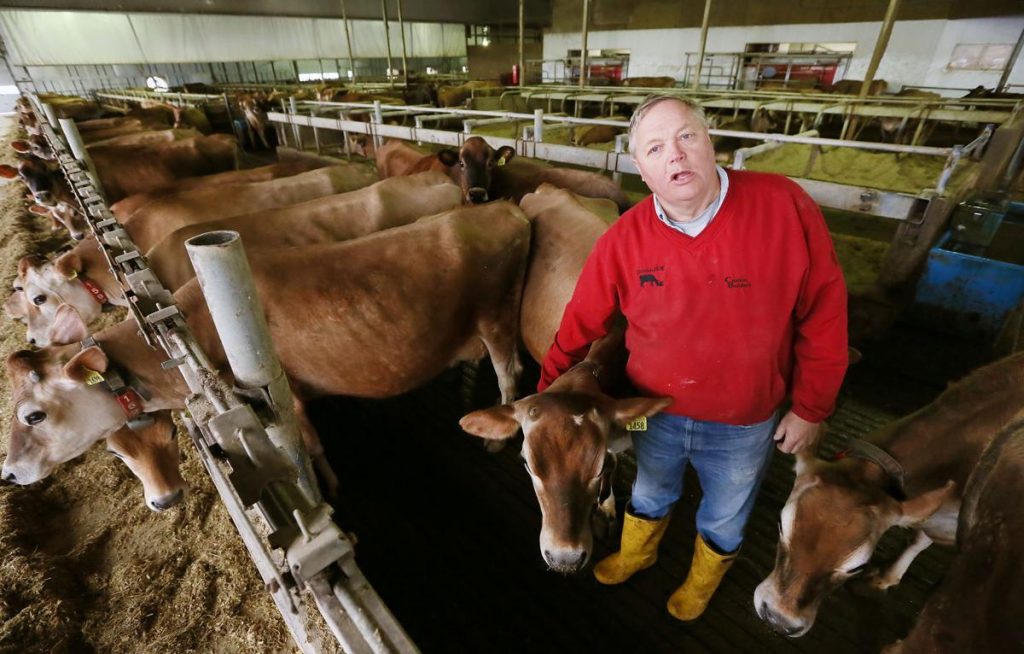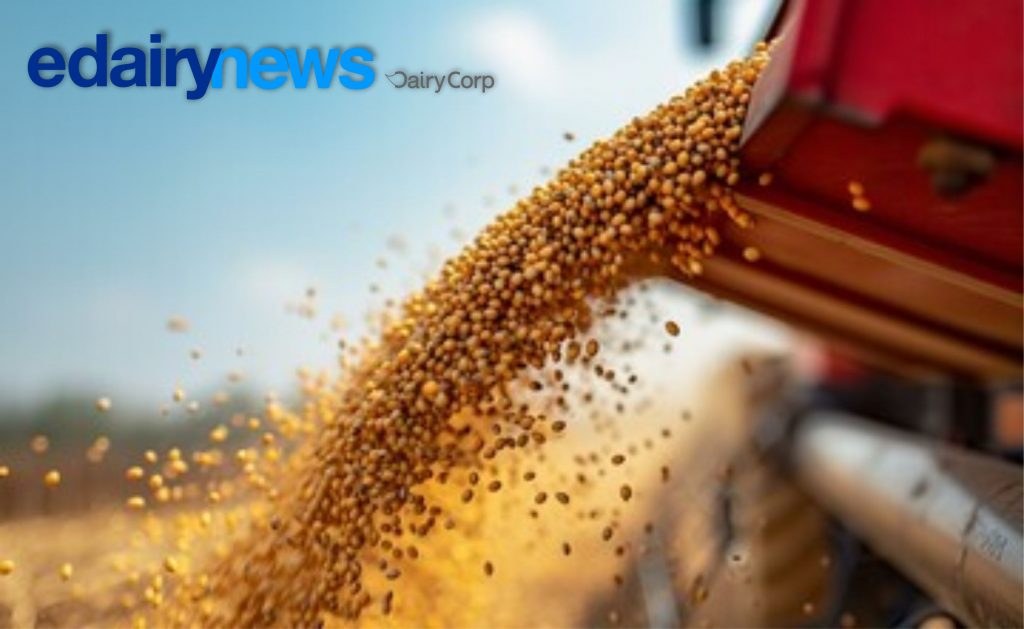We learned more.
Around 2013, Scott County Supervisor John Maxwell built a roughly 30,000-square-foot heifer barn with a concrete floor on one of his farms in Donahue, Iowa, north of Davenport. Maxwell and his wife, Joan Maxwell, a member of the Scott County Planning and Zoning Commission, own and operate Cinnamon Ridge Farms there.
The robotic dairy farm moonlights as a rural tourist attraction.
Assessor Tom McManus first said the Maxwells’ heifer barn was noticed by his office during a 2019 aerial inspection of the county, which is done every five years. That’s how county assessors in Iowa keep track of new agricultural development.
“Farmers get all the breaks in Iowa,” McManus said. “They can build without permits, and they don’t have to tell the assessor. They don’t have to notify us in any way.
“It’s the assessors’ job to discover (new structures).”
When I noticed the heifer barn had, in fact, appeared on the Scott County Assessor’s aerial photos from 2014, McManus said he misspoke.
It wasn’t the new photo that led to the discovery of the new building, after all. It was during an on-site visit earlier this year by an assessor from his office that the barn and other new buildings on the farm were noted.
“The property was flagged for reassessment, and we have already added these buildings and the other discovered improvements for the upcoming 2021 assessment year for taxation purposes,” McManus said. “The owner will be notified of the new assessment in March of 2021 and taxed accordingly in September of 2022.
“That is how the assessment/taxation cycle works in Iowa.”
In other words, the heifer barn at the robotic dairy will have eluded taxation for nearly a decade. Two aerial reviews of taxable structures missed it, and it took a coincidental in-person visit to push it onto the tax rolls — eventually.
Maxwell said this week that he didn’t know his heifer barn wasn’t being taxed. He doesn’t study his tax bills, he said, which might sound suspect coming from most people. But Maxwell owns a couple dozen properties in Scott County, mostly agricultural. He said his tax bill was about 80 pages long.
Besides, it’s not up to property owners to insist on being properly taxed, even elected county officials.
The Scott County Assessor’s office lists 19 structures at his Cinnamon Ridge Farms, including a huge milking parlor, on 38 acres. The net assessed value was $624,000 in 2016, which dropped to $435,000 in 2020. The latest annual tax bill is $7,612 and, of course, does not include the latest property improvements.
Dixie Saunders, president of the Iowa State Association of Assessors and the assessor for Van Buren County, said assessors concern themselves with value, not taxes (which are up to the various taxing bodies). And the value of agricultural property can change dramatically, year over year.
“If a building’s actual value is $500,000 and the agricultural factor is 15%, the productivity value of that building is $75,000,” Saunders said. “Agricultural factors can fluctuate significantly every revaluation year (every odd-numbered year).
“Therefore, it would be possible for the valuation of an agricultural building to be 50% less or more than it was a few years ago.”
I point this out to further demonstrate the truth in the assertion that farmers get all the breaks.
While the heifer barn and other new buildings at the Maxwell farm eventually will be added to the tax rolls, the buildings are not likely to be inspected. Building permits compel inspections, and agriculturally zoned land is exempt from permits — even for farmers’ homes.
A hopeless skeptic, I checked in with Scott County Planning and Development Director Timothy Huey for confirmation that farmhouses are exempt from permits and from reporting to the county assessor.
“Ag exemption is just the bane of our existence,” Huey said. “A house is a house, right?
“Actually, a house is a single-family residence. A farmhouse is a single-family residence occupied by a farmer.”
Nobody wants to be anti-farmer in Iowa, but plenty do want to be pro-fair taxation.
“There are a lot of assessment taxation laws that are outdated,” McManus said. “Iowa Assessors, as an association, attempt to get many of them changed or amended every year.
“Just saying that it is my opinion that the ‘ag exemption’ law is one state law that should probably be reviewed and possibly be updated.”
A change would produce new tax revenue, help county assessors more efficiently harvest taxable structures and create a system that treats all taxpayers the same, even Iowa farmers.













